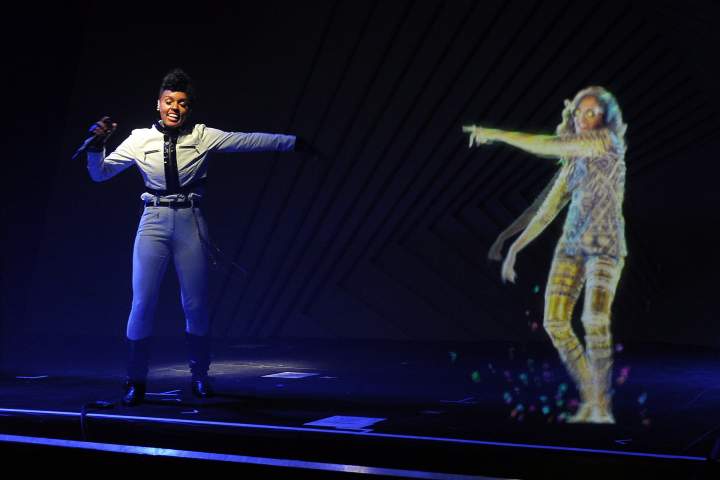Technology
AI Revolutionizes Music Industry Jobs: What Lies Ahead?

The music industry is undergoing a transformation driven by the rapid advancements in artificial intelligence (AI). As companies begin to adapt to AI technologies, new roles are emerging that did not exist just a few years ago. This shift mirrors the earlier disruptions caused by the internet and social media, pushing the industry towards a future that raises both opportunities and challenges.
Hallwood Media, an independent record label founded by former Geffen Records president Neil Jacobson, recently announced a partnership with Imoliver, a human artist who utilizes AI to craft music. This collaboration highlights the evolving nature of music production, where traditional roles such as record producers and songwriters are being redefined as “music designers.” Jacobson remarked, “Imoliver represents the future of our medium,” emphasizing the unique blend of artistry and technology that AI brings to music.
AI’s ability to generate realistic songs has prompted record labels to seek out individuals proficient in these technologies. Platforms like Suno are at the forefront, enabling creators to produce music with unprecedented speed and efficiency. The question remains whether this innovation diminishes the value of traditional musicians, but it is clear that the demand for sound designers is rising. These professionals will find opportunities in various fields, including film scoring, jingle production, and the development of production libraries.
Virtual Artists and Hologram Technology
The concept of virtual bands is not new, but AI is taking it to new heights. Historical examples such as The Archies and contemporary projects like FN Meka illustrate the potential of AI-generated acts. Recently, artists such as Germany’s Ben Gaya are emerging as fully-fledged AI pop stars, created without the unpredictability associated with live musicians. Record labels see the appeal; AI performers do not face the same issues as human artists, including substance abuse or personal controversies.
The technology behind these virtual stars is accelerating. Some AI music programs can create an artist’s persona, complete with a name and songs, in less than a minute. This rapid development may soon lead to a significant shift in how the music industry operates, raising concerns about the authenticity and artistry behind such creations.
Another area of growth lies in the use of AI-generated voices for various media projects. Voiceover artists, once essential for commercials and educational material, may find themselves competing with AI voice agents that can replicate human voices. This raises ethical questions about the cloning of voices and the potential for misuse. The industry may soon require professionals who specialize in licensing voices to ensure that proper agreements and protections are in place.
Emerging Roles for the Future
As the demand for hologram performances increases, a new segment of the workforce is likely to emerge: hologram experts. This role is already in demand, particularly as estates of deceased artists seek to keep their legacies alive through virtual performances. The success of shows like ABBA Voyage demonstrates the revenue potential in this area, allowing artists to continue generating income without the rigors of touring.
The implications of these changes extend beyond just the creation of music. The industry’s structure may shift towards a model where established stars opt for virtual performances over traditional touring, minimizing the challenges associated with live shows.
With AI reshaping the landscape of the music industry, professionals must adapt to the new realities of their roles. The evolution of the industry, propelled by technology, suggests that artists, producers, and sound designers will need to embrace these changes to remain relevant. As the transition unfolds, the question of what constitutes authenticity in music will continue to be debated. The future of the music industry could be just around the corner, with the potential for these new roles to redefine how we experience music.
-

 Politics4 weeks ago
Politics4 weeks agoSecwepemc First Nation Seeks Aboriginal Title Over Kamloops Area
-

 World5 months ago
World5 months agoScientists Unearth Ancient Antarctic Ice to Unlock Climate Secrets
-

 Entertainment5 months ago
Entertainment5 months agoTrump and McCormick to Announce $70 Billion Energy Investments
-

 Science5 months ago
Science5 months agoFour Astronauts Return to Earth After International Space Station Mission
-

 Lifestyle5 months ago
Lifestyle5 months agoTransLink Launches Food Truck Program to Boost Revenue in Vancouver
-

 Technology3 months ago
Technology3 months agoApple Notes Enhances Functionality with Markdown Support in macOS 26
-

 Lifestyle3 months ago
Lifestyle3 months agoManitoba’s Burger Champion Shines Again Amid Dining Innovations
-

 Top Stories2 months ago
Top Stories2 months agoUrgent Update: Fatal Crash on Highway 99 Claims Life of Pitt Meadows Man
-

 Politics4 months ago
Politics4 months agoUkrainian Tennis Star Elina Svitolina Faces Death Threats Online
-

 Sports5 months ago
Sports5 months agoSearch Underway for Missing Hunter Amid Hokkaido Bear Emergency
-

 Politics5 months ago
Politics5 months agoCarney Engages First Nations Leaders at Development Law Summit
-

 Technology5 months ago
Technology5 months agoFrosthaven Launches Early Access on July 31, 2025











